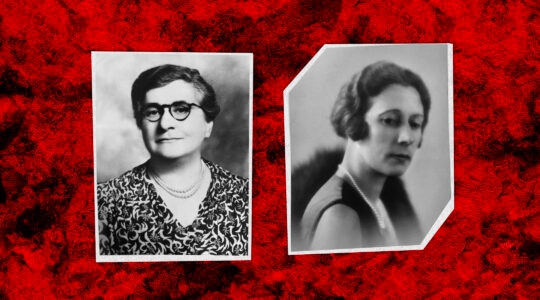For the first time in Israel’s 67 years of existence, the conversation surrounding the Jewish state has changed. Rather than seeing Israel as a place of conflict, young people are now looking at it as a place of opportunity. For their parents’ and grandparents’ generations, Israel was perceived as needy, as a place solely of war, of turmoil, as a place defined by its existential threats. Not since the earliest days of the Zionist movement has there been such incredible positive energy and enthusiasm for Israel as there is now.
What prompted this change? What’s behind this immensely positive transformation? The game changer is quite simply a 10-day bus ride in Israel for young people to explore their Jewish heritage.
I refer to the phenomenon known as Birthright Israel, or Taglit, which is celebrating its 15th anniversary in 2015. Taglit-Birthright Israel has sent nearly 500,000 young Jewish adults on a free trip to Israel since 2000.
Taglit, the Hebrew word for “discovery,” has allowed an entire new generation to discover Israel in a unique and intimate way.
Birthright Israel is an agent of change, growing exponentially with the rise of social media throughout the last decade. Not only are tens of thousands of young Americans bringing their Israel experience back home, they are sharing it with all of their friends on Instagram, Facebook and Twitter as well. The core age group that goes on Birthright every year falls into the coveted marketing demographic of 18- to 26-year-olds. According to a study last year by Edison Research and Triton Digital, the average American in this group has more than 500 friends on Facebook. Just imagine, each participant who posts an album of uncensored, authentic and attractive pictures of Israel is reaching their friends and friends of friends and so on.
All told, the Birthright program has had an estimated reach of 250 million people around the world. If a picture is worth a thousand words, these pictures are worth billions to Israel’s economy. Despite geopolitical crises over the years, and regional tensions heightened as a result of the so-called Arab Spring, Israel’s tourism numbers have steadily increased.
The Taglit-Birthright program does more to show the true face of Israel, to expose the true warmth and spirit of the Israeli people, than any traditional advocacy effort or ad campaign ever could.
This impact of the Taglit-Birthright program is felt through millions of people around the world who discover Israel by scrolling through their newsfeeds and seeing what their friends have posted.
It’s not all sightseeing and wine tasting, either. One of the most integral elements of the program is the opportunity to meet IDF soldiers who accompany Birthright participants. In a country where virtually every man and woman serves to defend the Jewish state, the Israeli army representatives are a local lens and serve as a powerful bridge-building tool.
At the end of this 10-day experience, participants come back with the emotional tie and experiences necessary to effectively cope with anti-Semitic and anti-Israeli rhetoric on campuses and classrooms. Surveys and follow-ups have shown participants gain an enormous increase in positive associations with Israel and with Jewish life. They are more connected with their Jewish identity and more curious about every aspect of Israeli society, from its high tech and business sectors to political realities on the ground. In just 10 days, apathy morphs into hunger and passion to learn more and do more when it comes to Israel.
Above all else, Birthright provides a tremendously positive experience: it’s fun. For those unaware or uninformed of what kind of place Israel truly is, fun could never be a word to describe it. But that’s the element of Israel that almost 500,000 young adults have brought back with them since 2000. In the 21st century, millennials are now seeing Israel as a fun, beautiful country with a lot to offer.
It’s no wonder that Taglit-Birthright has had the unintended consequence of being a massive boost to Israel’s tourism sector and economy. London-based Ernst & Young quantified the impact of the Birthright experience as bringing in $825 million to the Israeli economy in both direct and indirect contributions from 2000-2012. Today, that figure has increased to $1 billion. All for a country the size of New Jersey, with a population less than the greater New York City area.
It has been a remarkable 15 years for the organization, and I cannot wait to see what Taglit-Birthright Israel can accomplish in the next 15 years.
With generosity from donors around the world and a modest investment from the Israeli government, Taglit-Birthright Israel has blossomed into something more than just a tool to connect young Jews with Israel. It’s a game changer.
Ambassador Ido Aharoni is the consul general of Israel in New York.
The New York Jewish Week brings you the stories behind the headlines, keeping you connected to Jewish life in New York. Help sustain the reporting you trust by donating today.




